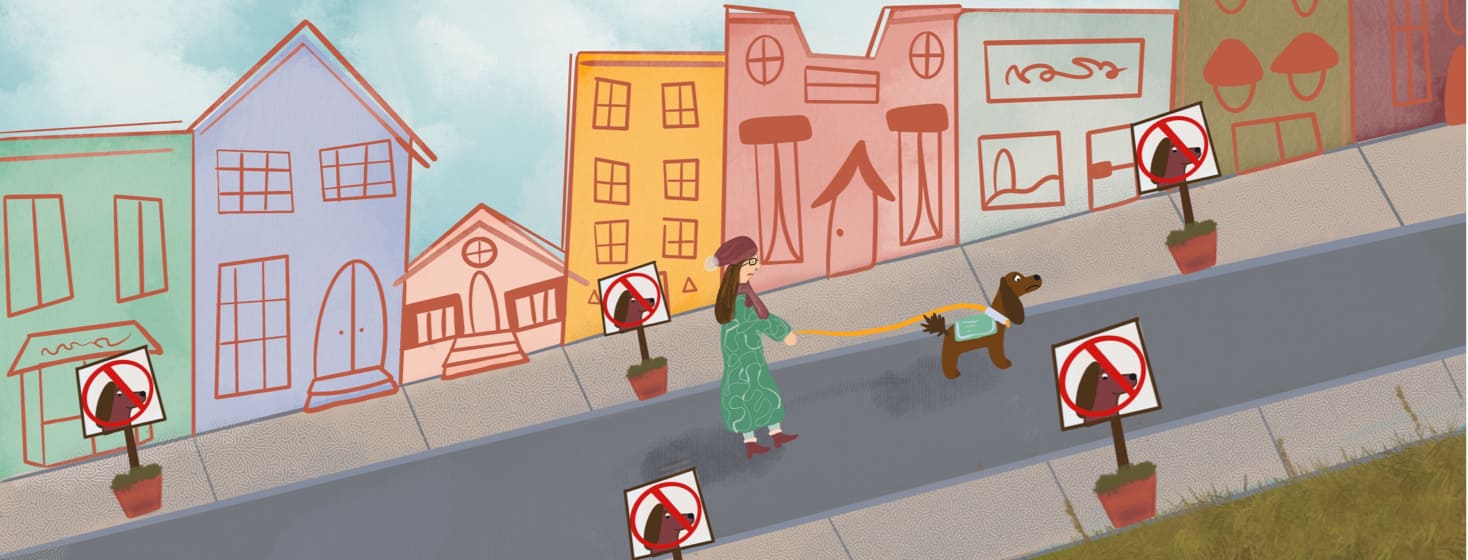Finding Housing With a Narcolepsy Service Dog
When I found out that I had to be out of my current living situation in a month due to a lack of funding on my landlord’s end, my first thought was, “Oh gosh... Now I have to find a place in a month with my service dog!”
What could possibly go wrong with that? Apparently, quite a bit.
Valid fears of housing discrimination
I’ve faced housing discrimination because of my narcolepsy service dog. This is despite the fact that she is a medical device by law since she is trained to alert to my sleep attacks that I get due to my type 1 narcolepsy. For that reason, I am incredibly hesitant to attempt to work with landlords on getting ADA accommodations for my service dog to live with me in non-pet-friendly housing.
Housing isn’t the only sector where I’ve experienced discrimination against my disabilities. For example, while trying to enter a store with my service dog, I was told to tie her up outside and leave her. To set the stage with even more clarity – it was raining outside. She would have been cold, afraid, and vulnerable – and unable to do her job as my medical alert dog.
I refused to leave her alone outside and we walked away with our heads held high. I’ve reported these instances of disability discrimination, and nothing has come out of it. In other words, my fears of facing housing discrimination due to my service dog are valid.
Taking a different approach
This time around, I handled finding housing with my service dog a bit differently. So far, I am unsure if I have been successful.
For example, the studio unit within my budget is not pet-friendly. When I was inquiring about the unit, I was asked if I had other people moving in with me. I said no. When asked if I had pets, I said no. Why?
According to the Americans with Disabilities Act, “service dogs are working animals, not pets.” As such, they are required to be allowed even in non-pet-friendly-housing.1
Securing written documentation
At that point, I had nothing in writing to prove that I’d been considered for this unit. This would have made it easy for the landlord to blow me off at the first mention of a service animal, with no proof of their discrimination. As I mentioned, that exact situation has already happened to me before. I learned from it.
I knew that once I signed my lease, I would have a piece of paper with my name and the landlord’s name on it. I placed down the cash deposit to secure the unit, and I saved the receipt.
Informing my landlord about my service dog
Only after all of the steps above were complete did I inform my landlord about my service dog. They responded by saying that their insurance didn’t allow certain breeds on site and asking me why I had not been upfront with them.
To be honest with you, I was scared. The only thing that would have changed by telling them a week earlier in our interaction is their ability to back out with no documentation that I had ever been a housing candidate and, thus, no consequences for possible discrimination.
Waiting for resolution
So far, my landlord has said that they have to “check with their insurance company” and that they will get back to me within a couple of days. Hopefully, I will have a place for myself and my service dog at the end of this. If not, it will be another testament to the severity of disability discrimination in the US.

Join the conversation